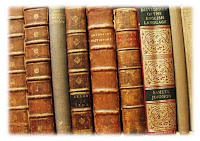Below is a list of mostly forgotten terms, people, and the occasional song, drawn from a reading offrontier fiction, 1880–1915. Each week
a new list, progressing through the alphabet, “from A to Izzard.”
earthen and iron pots =
a fable in which an earthen pot is
shattered by an iron pot, the moral being that one should keep the company of
one’s own kind. “Nothing will satisfy them but a human sacrifice on the altar
of a questionable nobility, and a repetition of the old fable of the earthen
and iron pots.” Willis George Emerson, Buell Hampton.
 |
| Edward Eggleston, 1912 |
Eggleston, Edward = American author and historian (1837-1902), best known for novels set in Indiana. “This serial (which involved my sister and myself in many a spat as to who should read it first) was The Hoosier Schoolmaster, by Edward Eggleston, and a perfectly successful attempt to interest western readers in a story of the middle border.” Hamlin Garland, A Son of the Middle Border.
 |
| Electrolier, 1910 |
elevate = to execute by hanging. “‘We’ve got a half-breed
here,’ said he, ‘who’s got to be elevated.’” John Neihardt, The Lonesome
Trail.
elflocks = tangled hair. “‘To be sure you’re not the man,’ he said, nodding his head until his elf-locks danced around his face.” James Oliver Curwood, The Courage of Captain Plum.
 |
| Ell |
ell = a lean-to. “This old bar, the last remaining bit of
furniture in the place, guarded the sagging door of a small ell evidently once
used as a tap-room.” Ada Woodruff Anderson, The Heart of the Red Firs.
embonpoint =
plumpness, stoutness. “They were met at
the door by a plump-faced lady of ample proportions who was evidently fighting
a losing battle with a tendency toward embonpoint.” James
Hendryx, The Promise.
.png) |
| Esker |
entryman =
one who enters upon public land with
intent to secure an allotment under homestead, mining, or other laws. “I didn’t
know Senator had his drag net out for parsons as dummy entrymen!” Agnes C.
Laut, The Freebooters of the Wilderness.
esker = a long ridge of gravel and other sediment, typically
winding, deposited by meltwater from a retreating glacier or ice sheet. “The
distance down the slope, across the esker and up among the silt mounds of the
gridded ice, appeared to shrink.” Robert Dunn, The Youngest World.
 |
| Everlasting pea |
everlasting =
flowers or foliage that retains form or
color for a long time when dried. “It was the Ranger in his sage green Service
suit wearing a sprig of everlasting in his Alpine hat.” Agnes C. Laut, The
Freebooters of the Wilderness.
Previous: D (drench - dyke)
Next: F (facer – flannel band)
More:
Sources: Cassell’s
Dictionary of Slang, Dictionary of the American West, The Cowboy Dictionary,
The Cowboy Encyclopedia, Cowboy Lingo, The Shorter Oxford English Dictionary, and
various online dictionaries
Image credits: Wikimedia
Commons
Coming up: Mark Mitten, Sipping Whiskey in a Shallow Grave

I wander when eating dog got replaced by eating crow.
ReplyDeleteI'm guessing they grew up together, but went to different schools.
DeleteTHANKS for the credit nod to my DICTIONARY OF THE AMERICAN WEST, Ron. Some of my favorite Western expressions come from their keen interest in three things--booze, whores, and death. Some of the terms are really colorful, some poetic. One expression for death, for instance, is "ride a painted pony with its face to the west."
ReplyDeleteGreat resource, the Dictonary of the American West. Well done. You're right about the many expressions for those particular subjects. Another phrase for death I like: "a jump into the misty beyond."
DeleteStoryteller is Win Blevins, who devoted a lot of time and passion to creating a marvelous dictionary of western terms. I recommend it to anyone who is interested. I use it frequently.
Delete